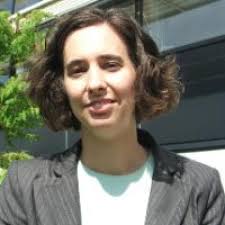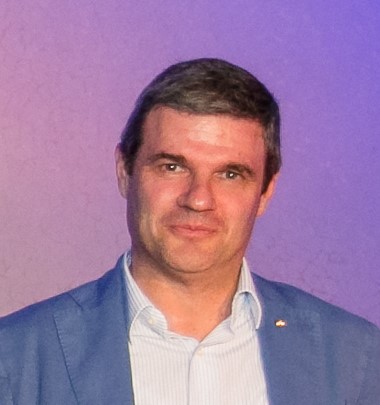Northern environments are undergoing rapid changes with the greatest shifts in temperature and some of the most extreme shifts in seasonal timing globally. Remote Sensing has enabled scientists to study and predict phenomena over large spatial and temporal scales. However, Earth observation data are being collected with increasing spatial, spectral and temporal resolutions, arguably at a faster pace than the development of algorithms for processing and analysing these data. The Nordic Remote Sensing Conference 2019 (NoRSC’19) will provide a transdisciplinary platform for researchers in both academia and industry, involved in the acquisition, analysis and applications of remotely sensed data to share their knowledge for the advancement of the field. It will also serve as a forum for networking to promote collaborative projects.
NoRSC’19 seeks to strengthen the cooperation between institutes and research groups in Earth Observation, taking inspiration from the Nordic Remote Sensing Days organised jointly by the Norwegian Space Centre and the Tromsø Centre for Remote Technology in 2011 and by the Finnish Remote Sensing Club in 2009. NoRSC’19 will bring together researchers in the broad field of Remote Sensing in, but not restricted to, the Nordic and Arctic countries. Topics include the acquisition of data from satellite, airborne, terrestrial or under-water platforms, development of algorithms for data processing and analysis, and the use of derived metrics in applications across disciplines. The sessions will be non-thematic to facilitate exchange of ideas across groups.

Dr Samantha Lavender
Managing Director, Pixalytics & Honorary Reader in Geomatics, Faculty of Science and Engineering, University of Plymouth, UK

Dr Lorenzo Bruzzone
Director, Remote Sensing Laboratory & Professor of Telecommunications, Department of Information Engineering and Computer Science, University of Trento, Italy
Dr Mark Drinkwater
Head, Earth and Mission Science Division (EOP-SM) , European Space Agency, European Space, Research & Technology Centre (ESTEC), Noordwijk, The Netherlands
Tuesday, 17 September 2019
13:00 – 17:00 Pre-conference workshops
17:30 – 18:00 Registration
18:00 – 20:00 Icebreaker Welcome Reception, AIAS Hall
Wednesday, 18 September 2019
08:30 – 09:00 Registration
09:00 – 17:00 Keynotes, Sessions I-IV, Posters & Exhibition
17:45 – 18:30 Guided tour of the ARoS Art Museum
18:30 – 21:00 Conference dinner at ARoS, ARoS Allé 2, 8000 Aarhus C
Thursday, 19 September 2019
09:00 – 16:15 Keynote, Sessions V-VIII, Posters & Exhibition
16:15 – 16:30 Conference Closure
Date: 17 September 2019 Time: 13:00 – 17:00
Maximum number of participants for each workshop: 40
Workshop 1: Deep Learning for Remote Sensing
Presenters: Sylvain Lobry & Diego Marcos, Laboratory of Geo-information Science and Remote Sensing, Wageningen University and Research, Netherlands
Ahmed Samy Nassar, IRISA, University of Southern Brittany, France & EcoVision Lab, ETH, Zurich, Switzerland
In the past few years, deep learning has become an effective way to process remote sensing data. In this workshop, we aim at reviewing both theoretical and practical notions of deep learning, with the objective of allowing the participants to incorporate this tool in their own research. We will start this workshop by reviewing the fundamental notions that are required to build and train a deep neural network and then look at two applications on remote sensing data: semantic segmentation and object detection. The rest of the workshop will be dedicated to build hands-on experience on these two problems. We will learn how to implement simple convolutional neural networks for semantic segmentation and object detection, how to train them and how to use them to predict on new data. Finally, we will conclude by outlining some use cases of deep learning for remote sensing data and a reflection of the adequacy of these methods in comparison with other machine learning tools.
Prerequisites: Presenters will live-program during the workshop. Basic knowledge of Python, MATLAB or R would be helpful.
Workshop 2: Bridging Earth Observation data and Machine Learning in Python
Presenters: Matej Batič & Devis Peressutti, Sinergise Ltd., Ljubljana, Slovenia
Extracting valuable information from satellite imagery is challenging primarily due to large amounts of data. On top of that there is a big lack of techniques allowing for automatic detection and extraction of complex patterns in such spatiotemporal data. eo-learn is a collection of open source Python packages that have been developed to seamlessly access and process spatio-temporal satellite imagery in a timely and automatic manner. The eo-learn library acts as a bridge between the Earth Observation (EO)/Remote Sensing (RS) field and the Python ecosystem for data science and machine learning. Join us to learn how to leverage eo-learn to obtain meaningful information from satellite data with just a few lines of Python code. More information
Prerequisites: Participants are requested to bring their own laptops. Basic knowledge of Python is required.
Authors of accepted abstracts will have the opportunity to contribute to a Special Issue of the International Journal of Applied Earth Observation and Geoinformation.
Read the call here and how to submit
Guest Editors: Cici Alexander (AIAS, AU, Denmark), Sanna Kaasalainen (FGI, Finland), Geoff Groom (AU, Denmark) and Freysteinn Sigmundsson (UI, Iceland).
Registration for the conference, dinner and pre-conference workshops is online via this conference page and will open in the middle of April 2019. Early bird rates apply until 28 June 2019 (in brackets below). Deadline for registration is 3 September 2019.
Conference fee: DKK 650,- (Early bird fee 450,-)
Register before 28 June 2019
(fee includes Icebreaker reception, lunches, and coffee)
Conference dinner: DKK 550,-
A 3-course dinner held at the restaurant of the ARoS Art Museum, including a guided tour of the art museum before the dinner.
Pre-conference workshop fee: DKK 850,- (Early bird fee 750,-)
We cordially invite you to submit abstracts to be considered for a poster or an oral presentation at NoRSC’19.
Topics include, but are not limited to: Laser scanners – Satellite, Airborne, Terrestrial and Bathymetric; Nanosatellites; Unmanned Aerial Vehicles (Drones); LiDAR and Radar; Optical and Thermal imagery; Data/image classification; Data Fusion; Processing and analysing ‘Big Data', and Applications in: Archaeology; Conservation; Forestry; Geomorphology; Land Use and Land Cover Mapping; Marine science; Snow & ice; and Urban studies (planning & management).
Format:
Oral presentations:
15 minutes (12 min. presentation + 3 min. for questions)
Poster presentations:
A0 (841 × 1189 mm) Portrait
Please submit your abstract in the following format to research.activities@aias.au.dk, with “NoRSC’19 – Abstract” in the subject line:
Type of presentation: [Oral/Poster]
Title:
Author(s):
Affiliation(s):
Contact email: [Include institutional email address of the corresponding author]
Abstract: [Max. 300 words]
Deadline for submission of abstracts: 29 April 2019
You can expect to receive notification of acceptance by the end of May 2019. We request presenters to kindly register by 28 June 2019, to ensure a place in the programme.